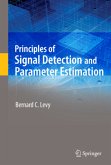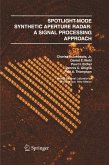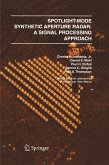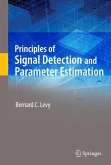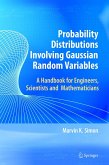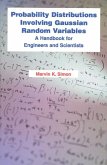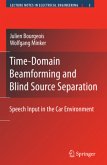The problem of noise immunity is a key problem for complex signal processing systems research in science and engineering. New approaches to such problems allow the development of a better quality of signal detection in noise.
This book is devoted to a new generalized approach to signal detection theory. The main purpose is to present the basic fundamental concepts of the generalized approach to signal processing in noise and to show how it may be applied in various areas of signal processing. The generalized approach allows extension of the well-known boundaries of the potential noise immunity set up by classical and modern signal detection theories. New approaches for construction of detectors with the amplitude, frequency, and phase tracking systems based on the generalized approach are presented.
Features and Topics:
New approaches to the statistical theory of signal detection
New features of signal detection based on experimental study
More rigorous definition of potential noise immunity
Chapter summaries and an analsys of recent observations obtained by computer modeling and experiment
Particularly useful applications for detection problems in radar, communications, wireless communications, acoustics, remote sensing, sonar, underwater signal processing, geophysical signal processing, and biomedical signal processing.
The book is an excellent resource for understanding and solving problems in modern signal detection theories. Professionals, scientists, engineers, and researchers in electrical engineering, computer science, geophysics, and applied mathematics will benefit from using the techniques presented.
This book is devoted to a new generalized approach to signal detection theory. The main purpose is to present the basic fundamental concepts of the generalized approach to signal processing in noise and to show how it may be applied in various areas of signal processing. The generalized approach allows extension of the well-known boundaries of the potential noise immunity set up by classical and modern signal detection theories. New approaches for construction of detectors with the amplitude, frequency, and phase tracking systems based on the generalized approach are presented.
Features and Topics:
New approaches to the statistical theory of signal detection
New features of signal detection based on experimental study
More rigorous definition of potential noise immunity
Chapter summaries and an analsys of recent observations obtained by computer modeling and experiment
Particularly useful applications for detection problems in radar, communications, wireless communications, acoustics, remote sensing, sonar, underwater signal processing, geophysical signal processing, and biomedical signal processing.
The book is an excellent resource for understanding and solving problems in modern signal detection theories. Professionals, scientists, engineers, and researchers in electrical engineering, computer science, geophysics, and applied mathematics will benefit from using the techniques presented.
"The book is devoted to a new generalized approach to signal detection theory, both general methods and experimental results with physical systems. It contains seven chapters. In the first one a brief description of the basic tenets of classical detection theory is given.... [The] last chapter deals with the definition of the type of signals, which may be used to ensure high resolution and noise immunity of complex signal processing systems based on the generalized approach. The book may be useful for experts working in the variety of fields related to modern signal detection theory." -Applications of Mathematics


